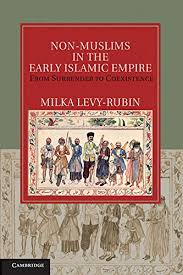-
Add to cartQuick view
Islamic Legal Hybridity and Patriarchal Liberalism in the Shari’a Courts in Israel
The civil judicial family law system and the shari‘a courts in Israel are a fascinating site for the study of legal hybridity, particularly with regard to cases involving the legal and religious rights of women. Legal hybridity is found both in the shari‘a courts, even when ruling on cases that are under their exclusive jurisdiction, and in the family courts that apply provisions of Islamic and Israeli law. In this article, I examine as a case study of the problem of appointing a woman as arbitrator between quarelling spouses in the shari‘a court arbitration process. This example shows how a shari‘a court operates under pressure from the secular civil judicial system. It is discernible how a system of legal hybridity gives rise to multiple discourses deriving from different normative systems and various players—such as human rights organizations, Islamic feminist movements, secular feminist movements, and the Israel Supreme Court—seeking to navigate the discourse in pursuit of their interests. My central thesis is that this system of legal hybridity is enhancing a patriarchal liberalism that is filled with obstacles and hurdles preventing full equality.
$5.00Free!Add to cartQuick view -
Read moreQuick view
Milka Levy-Rubin, Non-Muslims in the Early Islamic Empire: From Surrender to Coexistence. Cambridge: Cambridge University Press, 2011. 267 pp.
Milka Levy-Rubin, Non-Muslims in the Early Islamic Empire: From Surrender to Coexistence. Cambridge: Cambridge University Press, 2011. 267 pp.
$5.00Free!Read moreQuick view -
Read moreQuick view
Review Essay: Georges Tarabichi and the Religionization of the Public Sphere: A Heretic Voice from the East
Free!Georges Tarabichi. هرطقات [Heresies]
Vol. I: عن الديموقراطية والعلمانية والحداثة والممانعة العربية [On Democracy, Secularism, Modernity and Arab
Reluctance], 3rd ed. Beirut: Dar al-Saqi and The Association of Arab Rationalists, 2011. 237 pp.
Vol. II: العلمانية كإشكالية إسلامية – إسلامية [Secularism as an Intra-Islamic Issue], 2nd ed. Beirut: Dar al-Saqi and The Association of Arab Rationalists, 2011. 253 pp.Read moreQuick view -
Read moreQuick view
Challenging Religious and Secularist Patriarchy: Islamist Women’s New Activism in Turkey
Free!Since the late 1990s, following the state’s process of de-politicization and exclusion, educated Islamist women in the urban centers of Turkey have been active in raising Muslim women’s identity consciousness and generating solidarity with those affected by the headscarf ban. In the women’s organizations analyzed in this article, Islamist women are carving out a niche to challenge both secularist and Islamist patriarchal practices and discourse. This article contends that organized Islamist women have become significant actors in autonomously mobilizing religious women—in the political parties and in the Islamic movement—in the democratization process. The Islamist women’s learning process has opened them up to dialogue and cooperation—on gender equality and other liberalization issues—with secular women as well as with other oppressed groups. However, their “feminist” stance creates some dilemmas for Islamist and secular women.
Read moreQuick view -
Read moreQuick view
The Long Shadow of Max Weber: The Notion of Transcendence and the Spirit of Mystical Islam
In this article I argue that Max Weber’s analysis of the reasons behind Islam’s failure to convert its sophisticated notion of transcendence into the order of rationalization that was initiated, according to him, in Protestantism, is based on a flawed conception of the implications of this notion for the Islamic mystical tradition, whose greatest representative is Muhyddin Ibn al-ʿArabi (d.1240). I discuss three distinguished scholars’ visions of Islam: Muhammad al-Jabiri, Ahmet Davutoğlu, and Richard Khuri on the background of Max Weber’s analysis of the sociopolitical history of Islamic civilization. I attempt to show that Jabiri’s negative view and Davutoğlu’s indifferent view of Ibn al-ʿArabi’s mystical philosophy precluded them from overcoming Weber’s implicit influence on their thought. Despite their limitations, Khuri’s highly appreciative view of the Islamic mystical tradition in general and Ibn al-Arabi’s unique notion of transcendence in particular, are major steps beyond Jabiri’s and Davutoğlu’s conceptions of Islam, which may be considered Weber’s mirror images, and towards an appreciation of the spirit of its intellectual history.
$5.00Free!Read moreQuick view -
Read moreQuick view
The Struggle for Humanism in Islamic Contexts
The section is a translation of the introductory chapter of The Struggle for Humanism in the Islamic Context, by the late French-Algerian philosopher Muhammed Arkoun, who was one of the most important Muslim philosophers in the last few decades. Arkoun believes that the key to rejuvenating and revitalizing Islam is in understanding and reviving tenth-century methods. He attacks the separation of disciplines that removes Islamic studies from religious studies, as is customary in both the Muslim and the Western world and rejects the ceaseless quest for authenticity. He complains that the Muslim world is afflicted by modern ideologies without being included as a partner in the construction of this modernism, and calls for intellectual, sociological, legal and philosophical activity by scholars of Islam to restore reason to Islam. He blames the failure of enlightenment in the Muslim world on the education systems of countries and religious movements that emphasize authenticity, patriarchal nationalism, national character and difference, thus sowing the seeds of fanaticism and hatred of strangers. The obsessive search for authenticity serves the dominant movements as an escape from their problems and hinders the development and revitalization of humanism in the Islamic context. Arkoun argues that hiding behind the search for authenticity will not let them permanently avoid the difficult challenge of analyzing the text underlying Muslim law. Only such an act will restore Islamic studies to the disciplinary framework of religious studies and energize humanism in the Muslim world.
$5.00Free!Read moreQuick view -
Add to cartQuick view
Rediscovering the Mediterranean: Political Critique and Mediterraneanism in Mohammed Arkoun’s Thought
Free!The article explores the works and the thought of Muhammed Arkoun, one of the most prominent Muslim intellectuals in the West, and a representative of liberal Islam. Since the 1970s, Arkoun’s major intellectual critique was directed at “Islamic reason.” He endeavored to deconstruct the “regimes of truth” of Islamic medievalist dogmas, which still function as orthodoxies among contemporary Muslims (Sunni, Shiʿi and Khariji). According to his analysis, this medievalist perception of Islam fulfills a function in the modern era of political ideology. His works not only deconstruct and reassess Islamic traditional epistemology but also posit a counterpoint to the common perception of Islam among both Muslim believers and western scholars.
The article contextualizes Arkoun’s works in the intellectual and political history of the Arab-Muslim countries of the southern and eastern Mediterranean. The first section presents a general overview of Arkoun’s oeuvre since the 1960s, with special emphasis on the foundation of his political critique. The second section sheds light on the role of the Mediterranean as a concept of mental and geo-cultural space in Arkoun’s thought.
Add to cartQuick view
- Home
- About JLS
- Issues
- Vol. 9 No. 1 | Summer 2019
- Vol 8 No 2 Winter 2018
- Vol. 8, No. 1: Summer 2018
- Vol. 7, No. 2: Winter 2017
- Vol. 7, 1: Summer 2017
- Vol. 6, Summer/Winter 2016
- Vol. 5, No. 2 Winter 2015
- Vol. 5, No. 1 Summer 2015
- Vol. 4, No. 2 Winter 2014
- Vol. 4, No. 1 Summer 2014
- Vol. 3, No. 2 Winter 2013
- Vol. 3, No. 1 Summer 2013
- Vol. 2, No. 2 Winter 2012
- Vol. 2, No. 1 Summer 2012
- Vol. 1, No. 2 Winter 2011
- Vol. 1, No. 1 Summer 2011
- Blog
- dock-uments
- Subscribe
- Submit
- Contact




